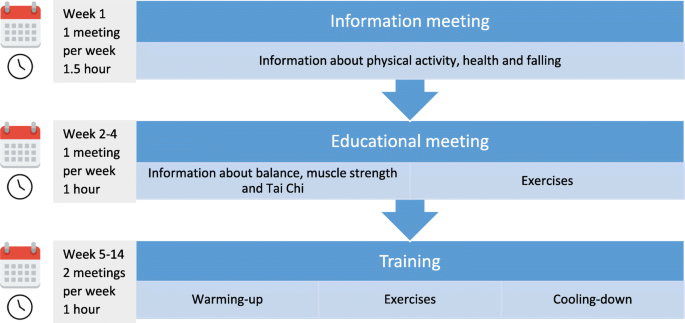The 15-Second Trick For Dementia Fall Risk
The 15-Second Trick For Dementia Fall Risk
Blog Article
Dementia Fall Risk Fundamentals Explained
Table of ContentsThe Only Guide to Dementia Fall RiskSome Ideas on Dementia Fall Risk You Need To KnowThe Basic Principles Of Dementia Fall Risk Dementia Fall Risk Things To Know Before You Get ThisThe Of Dementia Fall Risk
You could be nervous since you've had a loss before or due to the fact that you have actually discovered you're beginning to feel unstable on your feet. You could have noticed modifications to your health, or just seem like you're decreasing a little. Whatever the reason, it isn't uncommon to come to be cautious and shed self-confidence, and this can quit you doing things you used to do and make you feel more separated.If you have actually had an autumn or you have actually begun to feel unstable, inform your doctor even if you really feel fine otherwise. Your medical professional can check your balance and the way you walk to see if enhancements can be made. They may have the ability to refer you for a drops threat assessment or to the falls avoidance service.
This info can be acquired via meetings with the individual, their caretakers, and an evaluation of their clinical records. Begin by asking the private concerning their history of drops, consisting of the frequency and scenarios of any current falls. Dementia Fall Risk. Inquire about any kind of flexibility troubles they might experience, such as unsteady or trouble strolling
Conduct an extensive review of the individual's drugs, paying particular focus to those understood to increase the risk of drops, such as sedatives or medicines that reduced high blood pressure. Determine if they are taking numerous drugs or if there have actually been current modifications in their drug regimen. Assess the person's home atmosphere for prospective dangers that could boost the risk of falls, such as poor illumination, loosened rugs, or absence of grab bars in the restroom.
Some Known Details About Dementia Fall Risk
Overview the individual via the fall danger assessment type, describing each question and recording their reactions precisely. Ensure that the specific understands the function of the analysis and feels comfy giving straightforward responses. Determine the complete danger score based upon the reactions offered in the assessment type. Determine the individual's threat category (reduced, medium, or high) based on the overall rating and the existence of automated high-risk status variables.
This strategy may consist of workout programs to enhance strength and equilibrium, medication changes, home adjustments, and references to other professionals as needed. Frequently keep track of the person's development and reassess their danger of drops as required. Modify the care strategy based on adjustments in their health and wellness condition or home atmosphere. Supply recurring education and learning and support to advertise safety and security and decrease the risk of drops in their daily living tasks.
Lots of researches have actually shown that physical my review here treatment can help to reduce the threat of falling in grownups ages 65 and older. In a brand-new research (that checked out falls threat in women ages 80 and older), researchers computed the economic effect of choosing physical therapy to avoid falls, and they found that doing so saves $2,144, consisting of all the surprise expenses of your time, pain, missed life occasions, and the dollars paid for solutions.
Not known Facts About Dementia Fall Risk
Assessing your balance, toughness, and walking capability. A home safety assessment. Based on the evaluation results, your physical specialist will design a strategy that is tailored to your certain needs.
Older adults who have trouble walking and speaking at the same time are at a greater risk of falling. Dementia Fall Risk. To assist why not try here enhance your safety throughout day-to-day tasks, your physical specialist may make a training program that will challenge you to maintain standing and walking while you do an additional job. Instances include walking or standing while counting backward, having a conversation, or lugging a bag of groceries
Set objectives for boosting their physical task. Work out more to raise their toughness and balance. These programs frequently are led by volunteer trainers.
Things about Dementia Fall Risk

Measles, or rubeola, is a highly transmittable, intense viral contagious disease Source triggered by the measles virus. Some individuals think about measles as simply a rash and high temperature that removes up in a few days; however, measles can trigger severe health issues, particularly in kids more youthful than 5-years-old. The very best protection against measles is the measles, mumps, and rubella (MMR) vaccination.
Autumns are a common reason for injury among older grownups. According to the CDC, in one year alone, fall-related injuries added to over $50 billion in medical costs (Dementia Fall Risk). In medical facility setups, older grownups go to specifically high threat of falls since their reduced flexibility from being constrained to a room or bed.
4 Easy Facts About Dementia Fall Risk Described

She has a case history of seizure condition and hypertension. She is obtaining an IV mixture and taking Gabapentin and Lasix. She has no history of drops, her stride is stable, and she voids without issues. The previous nurse states that she calls for support to the bathroom when she needs to go.
Examples of typical autumn interventions/measures include: Making sure a patient's necessary products are within reach. Past recognizing just how to make use of the Johns Hopkins Autumn Danger Evaluation Tool, it's crucial that centers incorporate its use right into a more comprehensive autumn avoidance plan.
Report this page